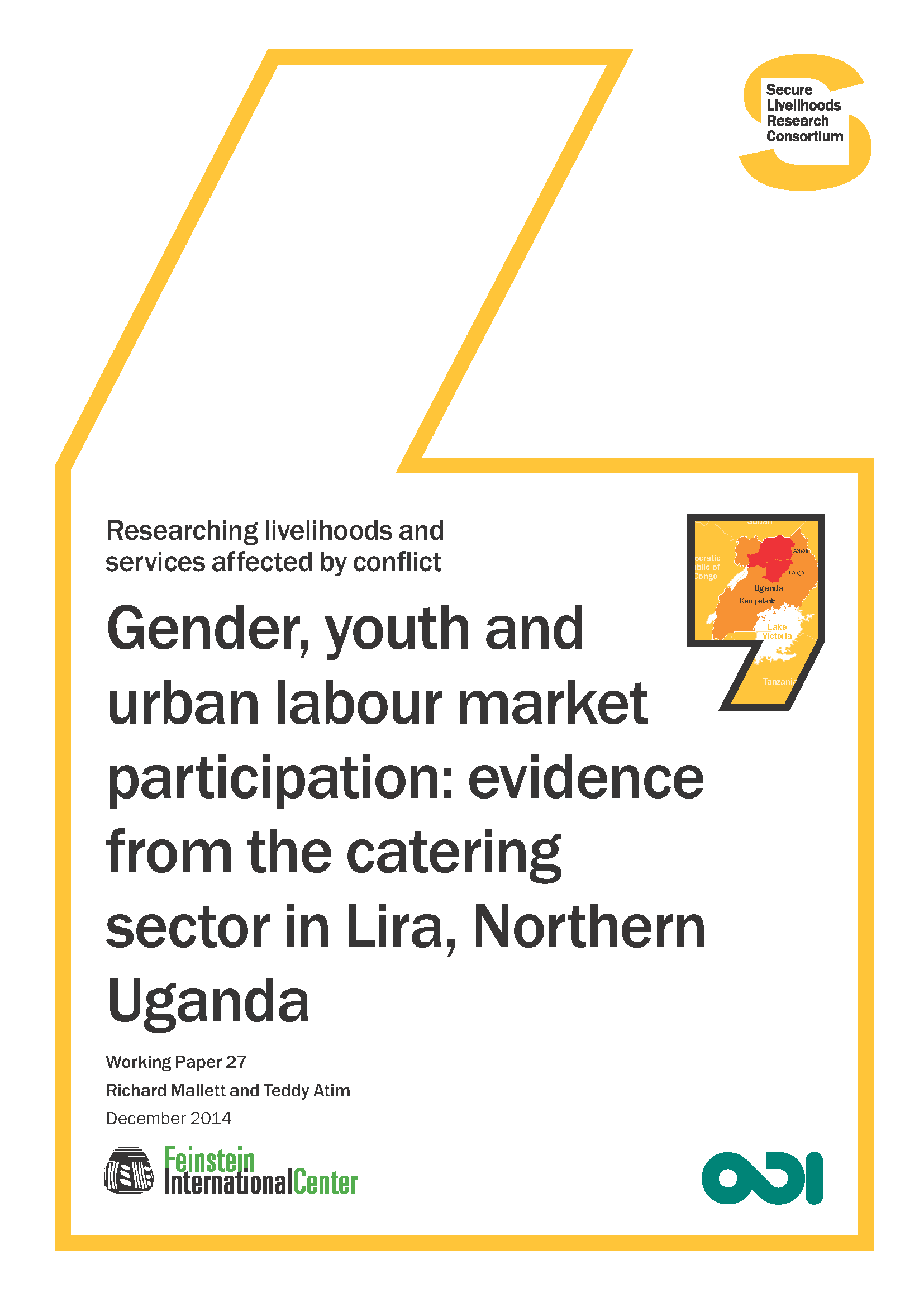This working paper examines the urban labor market in Lira, a large and expanding town in post-conflict northern Uganda. Through the case of the catering sector, the authors analyze the terms of entry into and participation in the service industry, in which 85 percent of the working population of urban Uganda is employed.
The researchers found that in Lira’s urban labor market:
- Work tends to be low-paying, stressful, and highly insecure
- Workers tend to move rapidly from one job to the next, and they are rarely able to accumulate wealth or progress within a single profession
- Participation in certain jobs may diminish workers’ future employment opportunities or damage important kinship ties
- Women are disproportionately exposed to gender-based vulnerability and violence
- Young people turn to the informal economy to supplement income, seeing the labor market as insufficient, exploitative, and unfair
While focused in northern Uganda, the paper offers lessons for economic programs in conflict-affected environments, including a critique of microfinance and similar programs.
This research draws on qualitative data collected between May and June 2014 for the Secure Livelihoods Research Consortium (SLRC), a six-year, eight-country research study led by the Overseas Development Institute (ODI) in London. SLRC investigates livelihoods, access to basic services, and social protection in fragile and conflict-affected situations. The research is funded by the UK Department for International Development (DfID), Irish Aid, and the European Community (EC). The Feinstein International Center leads SLRC research in South Sudan and Uganda in addition to its participation in the Sierra Leone research.







